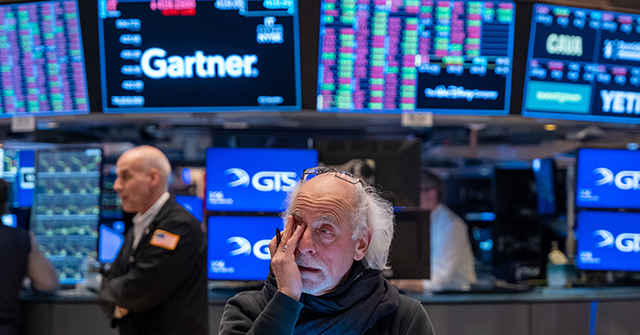Another Myth About “Protectionism” Shattered
The stock market’s reaction to Donald Trump’s newly announced auto tariffs has been swift and revealing. Shares of major U.S. automakers slid. But instead of confirming the standard critique of tariffs, the sell-off does the opposite: it exposes just how outdated and off-base the old arguments against tariffs have become.
We’ve long been told that tariffs protect inefficient “incumbent” firms, letting them jack up prices and squeeze more profits out of consumers. But if that were true, Ford and GM stock should be surging. Tariffs on foreign competition should, in theory, boost their pricing power and expand their margins.
They’re not. The market is punishing them. And that tells us something important.
Today’s corporate “incumbents” aren’t companies that have been sheltered behind tariff walls—they’re companies that thrived under globalization, often by offshoring production, hollowing out domestic capacity, and chasing the cheap labor. These are not inefficient firms in the traditional sense. They’re highly efficient at optimizing global supply chains, but dangerously overexposed to a world order that’s now unraveling.
Trump’s tariffs are not designed to prop up failing companies. They’re meant to restructure the economy away from dependence on hostile or unstable foreign supply chains, and toward domestic production. That reorientation is painful for firms that bet big on globalization, and that pain is exactly what we’re seeing reflected in stock prices.
The Globalization Bubble Has Popped
Think of it this way: tariffs are to globalized corporate America what the subprime mortgage collapse was to the financial system in 2008. Back then, too, an elite consensus had taken hold, rewarding executives who leaned into the idea that there was almost no risk to mortgage lending by securitizing bad loans, loosening lending standards, and inflating bubbles. When the crash came, the damage was widespread because the system had been built around a flawed model.
The same thing happened with globalization. Offshoring wasn’t inevitable. Companies weren’t forced to send production overseas. They didn’t have to be—any more than banks had to be forced to load their balance sheets with mortgage risks. The corporate culture that emerged after NAFTA and China’s entry into the WTO rewarded executives who cut domestic headcount, shifted manufacturing abroad, and wholeheartedly embraced the mantras of free trade and globalization. That’s how you climbed the ladder in American business.
Now the geopolitical and economic winds have shifted. And the firms most leveraged to the old system—those that rely on sprawling, fragile, low-cost foreign production—are showing signs of strain. Tariffs didn’t create this weakness. They exposed it.
The deeper truth here is that tariffs aren’t just about prices or profits. They’re about power—specifically, the redistribution of power away from multinational executives and toward American workers. That’s why Wall Street reacts with dread. Investors know that a domestic production push may benefit middle America but not necessarily shareholders who’ve grown fat off the globalist model.
Traders work on the floor of the New York Stock Exchange (NYSE) on March 28, 2025, in New York City. (Spencer Platt/Getty Images)
Of course, there will be transitional costs. Reshoring production doesn’t happen overnight. Input costs may rise in the short term. Supply chains will need to be rebuilt. But re-industrialization is a long-term project, not a market play for next quarter’s earnings.
What the reaction to the tariffs shows is that Trump is serious about changing the structure of the economy, not simply handing out favors to corporate friends or boosting the price of equities. And that’s what sets his agenda apart from both traditional protectionism and neoliberal orthodoxy. He’s not protecting entrenched corporate interests or inefficient incumbent monopolists. He’s rebuilding the industrial capacity of the United States.
So, when critics say tariffs are just crony capitalism for incumbent firms, point them to the stock market. It’s not cheering. It’s panicking. Because this time, the rules really are changing.
Read the full article here


